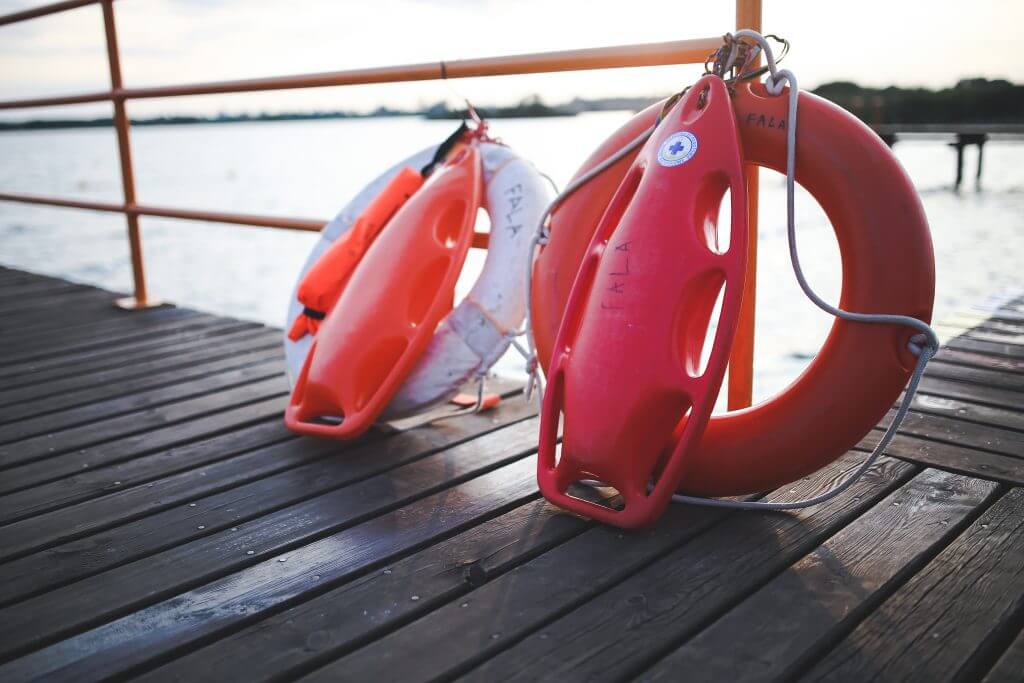Lifeguarding: The Positives of Overseeing the Pool

Lifeguarding: The Positives of Overseeing the Pool
Lifeguarding is a well-known job for swimmers, particularly in the summer. Of course, it is not what you see in movies or tv shows. You won’t be able to fall asleep in the chair or flirt with cute patrons. There’s much more to lifeguarding that people don’t really take into account when going to the pool. So we end up being glorified babysitters, if people choose to be irresponsible.
Here are some of the positive of being a lifeguard.
Being a Lifeguard Teaches Responsibility
In order to become a lifeguard, you need to get the proper training and certifications. There are different certifications like American Red Cross or Starguard, however American Red Cross is the most well known. The training involves CPR and First Aid, which are skills that are very useful. Knowing and learning these skills reinforce that lifeguarding is a serious role.
There can be emergencies like kids drowning or a spinal injury. Those are serious situations that cannot be taken lightly because you and your staff can become responsible if something goes wrong. While it might be safe to assume everybody coming to the pool can swim and know the rules, you cannot forget that most of the incidents that happen are accidents.
You Learn a Lifesaving Skill
The previous point touched on becoming CPR and First Aid certified, which is an obvious lifesaving skill. There are many videos out there on the internet that show real life situations at a pool, where someone has experienced a catastrophic event and needs CPR in order to be saved.
One specific video that every lifeguard has watched at least once is from the YouTube channel Bondi Rescue, where the lifeguards resuscitated a patron who drowned in the ocean and was clinically dead for five minutes. All the lifeguards on the shift were able to communicate, work together and use their skills in order to help bring the patron back to life. The main point of the video is to show that it is crucial to always be on top of your skills because you never know when an incident can happen.
Your Co-Workers
When it comes to working a new job, depending on where you work, you might know a couple of people or no one at all. Most of the time in lifeguarding, your co-workers will be around the same age as you, so it can be easy to make friends. You’ll almost always have co-workers who are swimmers or used to swim. So with that interest in common, it might be easier to talk and get to know others on staff.
When you start to get comfortable at your job and become friends with your co-workers, the job ends up being much more enjoyable than just watching the water and people. On slow days in the summer, your co-workers can really make a difference during the shift. If there’s no one at the pool, you can enjoy time together.
The Environment
Whether you work at a water park, local pool, or at a university, you’ll see a lot of people come in and out. Kids are probably some of the best patrons you come across because they are friendly and most of the time think lifeguards are really cool. They’ll want to talk to you about your job and what you do as well as use the red buoy that you carry around.
Even if you have never even talked to one of the kids at the pool, they’ll still get your attention and show you that they can jump in the pool. While it may seem boring to you, to them it’s something they just learned and are very proud of.
If your pool has diving boards, a group of kids might ask you to rank their dives one by one to see who’s best. If you’re a diver, you can offer tips to these kids to help them improve. If you act friendly to kids, most of the time they’ll behave, but regardless you’ve bonded with them or had some sort of influence on them. If they like who you are, they might want to become a lifeguard just like you.



